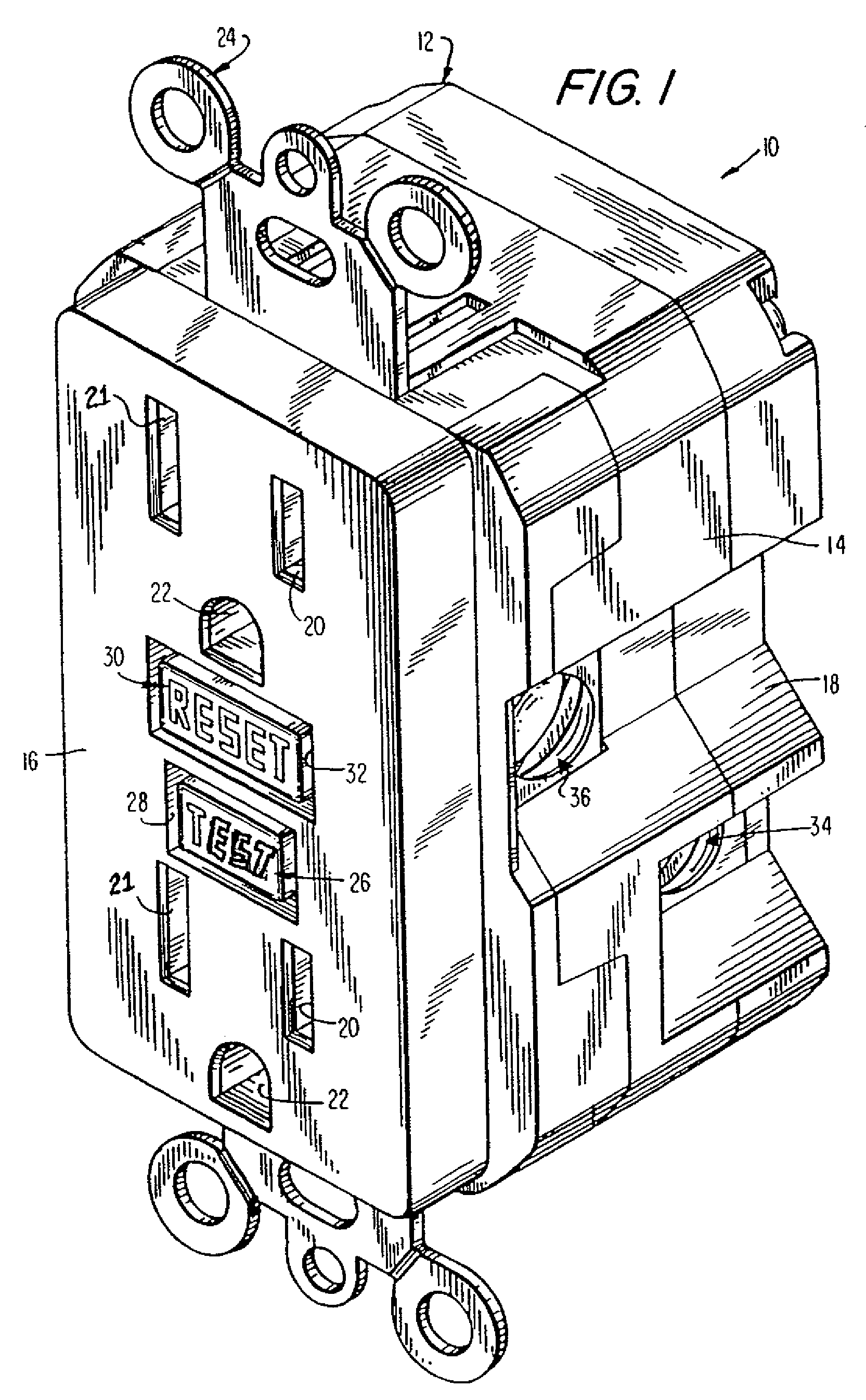Method of distribution of a circuit interrupting device with reset lockout and reverse wiring protection
a reverse wiring protection and circuit interrupting technology, applied in the direction of circuit-breaking switches, emergency protective arrangements for limiting excess voltage/current, protective switch details, etc., can solve the problems of tripping the device, electrical surge at the device, mechanical breakage of the circuit,
- Summary
- Abstract
- Description
- Claims
- Application Information
AI Technical Summary
Benefits of technology
Problems solved by technology
Method used
Image
Examples
Embodiment Construction
[0057]The present application contemplates various types of circuit interrupting devices that are capable of breaking at least one conductive path at both a line side and a load side of the device. The conductive path is typically divided between a line side that connects to supplied electrical power and a load side that connects to one or more loads. As noted, the various devices in the family of resettable circuit interrupting devices include: ground fault circuit interrupters (GFCI's), arc fault circuit interrupters (AFCI's), immersion detection circuit interrupters (IDCI's), appliance leakage circuit interrupters (ALCI's) and equipment leakage circuit interrupters (ELCI's).
[0058]For the purpose of the present application, the structure or mechanisms used in the circuit interrupting devices, shown in the drawings and described hereinbelow, are incorporated into a GFCI receptacle suitable for installation in a single-gang junction box used in, for example, a residential electrical...
PUM
 Login to View More
Login to View More Abstract
Description
Claims
Application Information
 Login to View More
Login to View More - R&D
- Intellectual Property
- Life Sciences
- Materials
- Tech Scout
- Unparalleled Data Quality
- Higher Quality Content
- 60% Fewer Hallucinations
Browse by: Latest US Patents, China's latest patents, Technical Efficacy Thesaurus, Application Domain, Technology Topic, Popular Technical Reports.
© 2025 PatSnap. All rights reserved.Legal|Privacy policy|Modern Slavery Act Transparency Statement|Sitemap|About US| Contact US: help@patsnap.com



